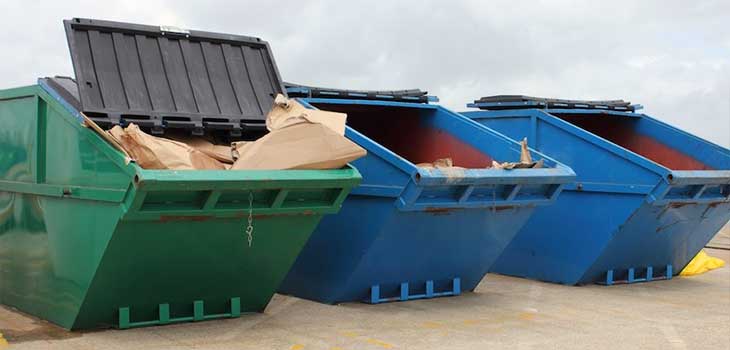In the hustle and bustle of our urbanized lives, many of us see skip bins as a mundane part of the cityscape. You toss your waste in, it gets collected, and that's the end of the story, right? Not quite. Have you ever paused to think about the environmental footprint of these ubiquitous containers?
What's the Environmental Footprint?
The environmental footprint of an item or service measures its environmental impact. For skip bins, it's a way of assessing how their manufacture, use, and disposal affect the environment.
1. Material Matters
Skip bins are typically made from metals like steel. Producing steel requires mining. Mining can lead to habitat destruction, soil erosion, and water pollution. Moreover, smelting the ore to extract metal consumes a lot of energy, mostly from fossil fuels. This adds to greenhouse gas emissions.
2. Size and Space
Skip bins take up space. In urban settings, this could mean less green space for plants, birds, and other critters. Less green space can increase temperatures, leading to the 'urban heat island' effect. Moreover, overflowing skip bins can attract pests and create unsanitary conditions.
3. Waste Accumulation
The waste inside the skip bin is another story. Organic waste like food scraps can produce methane, a potent greenhouse gas, when decomposing anaerobically (without air). Plastics can take hundreds of years to degrade, releasing harmful microplastics into the environment.
4. Transportation Tally
Skip bins don't empty themselves. Trucks transport the waste to landfills or recycling facilities. These vehicles consume fuel, leading to more emissions. The farther away the disposal site, the higher the environmental cost.
5. Landfill Limitations
Once the waste reaches a landfill, it doesn't just vanish. Landfills have their environmental problems. Toxic leachate can pollute groundwater. Decomposing waste emits more greenhouse gases. Plus, landfills occupy large tracts of land, altering natural habitats.
The Silver Lining: Recycling and Reusing
While there might be environmental concerns associated with skip bins, there's also a brighter side to the story. Many skip bin companies are proactively championing eco-friendly practices, realizing that the road to sustainability is paved with responsible waste management. Some bins are specifically designed for recyclable materials.
Recycling does more than just prevent waste from ending up in landfills. It reduces the need for new raw materials. This means less mining, less energy consumption, and fewer greenhouse gas emissions. Think about it: every piece of paper or plastic bottle that gets recycled is one less item putting strain on our planet's finite resources. Beyond just reducing waste, recycling can actively contribute to saving energy and conserving the environment.
But the environmental benefits don't stop with recycling. Reusing items is another effective way to curb the environmental footprint of waste. For instance, giving old furniture or electronics a second life not only reduces waste but also minimizes the need for manufacturing new products. Every time we repurpose or upcycle an item, we're playing a part in a larger global effort to tread lightly on the Earth.
Impacts on Ecosystems
The story of skip bins intertwines with our ecosystems in many ways.
- Waterways: Improper waste disposal can result in pollutants entering our rivers and oceans. Plastics, especially, pose a threat to marine life.
- Land: Overflowing bins can contribute to litter. Litter can harm terrestrial animals and degrade the beauty of natural landscapes.
- Air: Emissions from transporting and processing skip bin waste can contribute to air pollution. Poor air quality affects human health and can harm wildlife.
Every decision we make, even about where we toss our trash, has ripple effects on the environment. By choosing responsible skip bin companies, we can minimize negative impacts. It's also essential to be aware of what goes into our bins. Recycling and composting can dramatically reduce the environmental footprint.
Coastal Waste Promotes Eco-Conscious Waste Management
When we talk about eco-friendly skip bin services in Perth, Coastal Waste Management stands out. Not just for their efficient waste removal, but for their commitment to the environment. They recognize the significant environmental footprint of waste management and are continually innovating to reduce it.
From ensuring proper waste segregation to advocating for recycling and eco-friendly practices, Coastal Waste Management isn't just a skip bin company; they're environmental stewards. If you're in Perth and conscious about your environmental choices, they're the go-to solution for responsible waste management.
Visit their website at coastalwaste.com.au.
Conclusion
Skip bins, at first glance, might seem like simple waste containers. But they have a complex environmental narrative. By understanding their footprint, we become better equipped to make eco-conscious choices. As Australians, we're blessed with a rich and diverse ecosystem. Every step towards reducing our environmental footprint ensures a greener future for our beautiful land down under.
